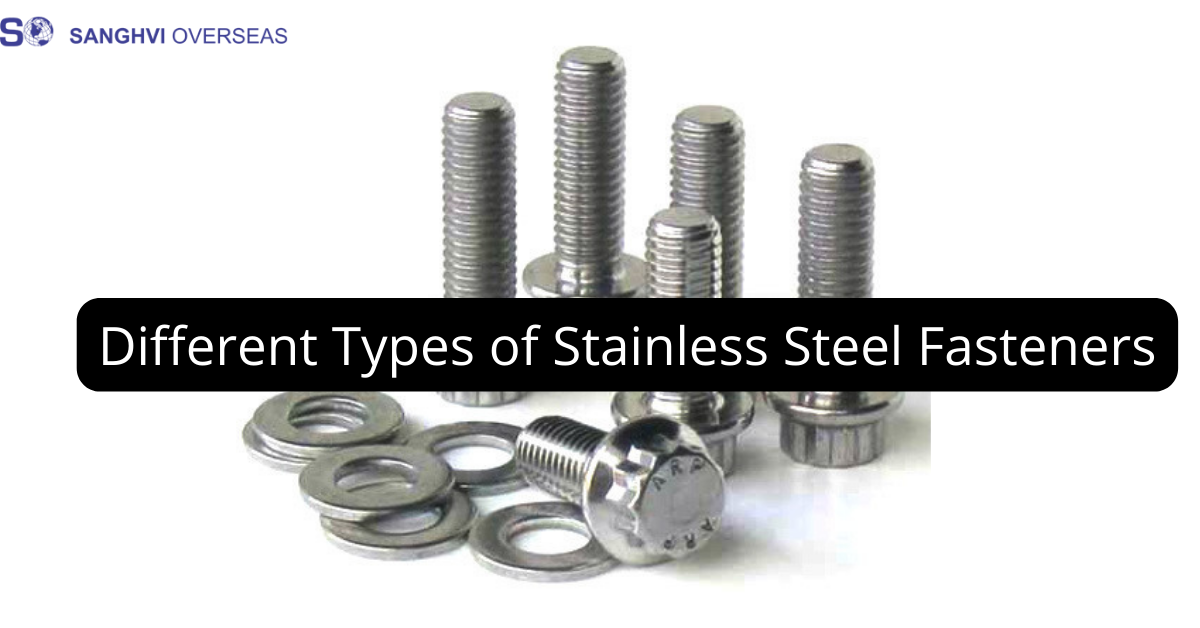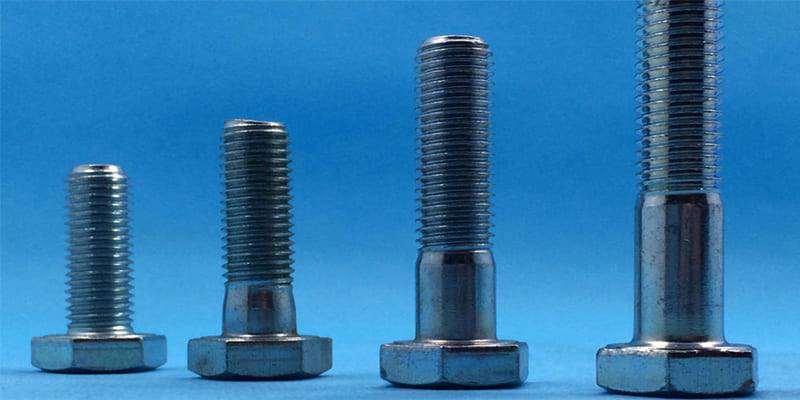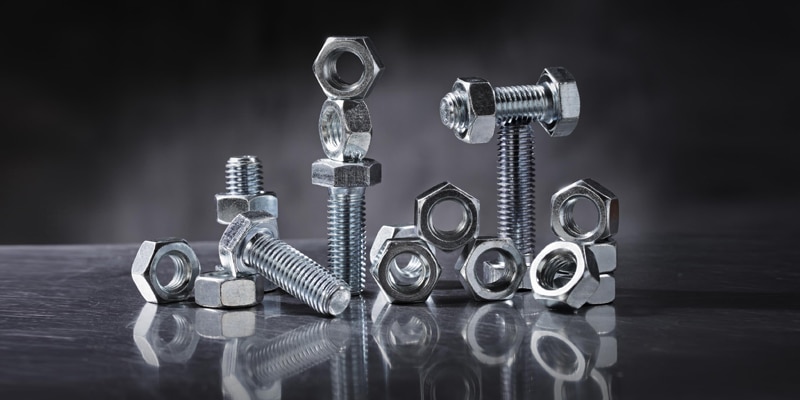Titanium Fasteners vs. Inconel Fasteners: A Detailed Comparison
The proper use of the right fasteners is important in challenging jobs. Whether an aircraft engine, a chemical processing facility, or equipment buried beneath the ocean fasteners hold it all together. If one fails, the entire system could potentially be at risk. Due to this, the material you select has a significant impact.
Two excellent options are Inconel and titanium fasteners. Both of them are robust, heat-resistant and corrosion-resistant. However, they differ from one another and each performs better under specific conditions.
This blog will compare them side by side. You’ll learn how they perform, where they’re used, and what they cost. If you’re deciding between the two, this guide can help.
Understanding Titanium Fasteners
What are Titanium Fasteners?
Titanium fasteners are parts like bolts, nuts, washers, and screws made from titanium. They are either alloys (like Grade 5), or pure titanium (like Grade 2). These are widely used in industries where corrosion resistance, strength, and weight are important considerations.
Key Properties of Titanium Fasteners
Among the main characteristics of titanium fasteners are:
High ratio of strength to weight: Although they weigh about 40% less than steel, they are just as strong.
- Excellent corrosion resistance: Great in seawater, salt spray, and harsh chemicals.
- Non-magnetic and biocompatible: Safe for use in medical implants and devices.
- Good heat resistance: They work well up to around 600°C (1,100°F), depending on the grade.
Titanium Fasteners are often picked for jobs where weight savings and corrosion resistance are top priorities.
Understanding Inconel Fasteners
What are Inconel Fasteners?
Inconel fasteners are made from nickel-chromium alloys like Inconel 600, 625, or 718. These are superalloys. They’re built to survive in the harshest settings—heat, pressure, and chemicals.
Key Properties of Inconel Fasteners
Inconel fasteners are built for extremes:
- Top-level corrosion resistance: Especially in acidic and high-temperature environments.
- High strength at high heat: Many grades maintain their strength at temperatures above 1,000°C (1,800°F).
- Performs under pressure: Perfect for gas turbines, deep-sea equipment and reactors.
Where most other metals breakdown, Inconel continues to exist. It is designed to push the boundaries of what it is perfect for.
Comparison Chart: Titanium Fasteners vs. Inconel Fasteners
Density and Weight
Titanium Fasteners: Lightweight (4.5 g/cm³), great for saving weight in aerospace and marine uses.
Inconel Fasteners: Heavier (8.4 g/cm³), built for strength and durability.
Tensile Strength
Titanium Fasteners: Strong at about 950 MPa, good for most structural needs.
Inconel Fasteners: Even stronger, up to 1,300 MPa, ideal for high-stress jobs.
Temperature Range
Titanium Fasteners: Works well up to 600°C.
Inconel Fasteners: Handles extreme heat up to 1,100°C.
Corrosion Resistance
Titanium Fasteners: Excellent in seawater and marine environments.
Inconel Fasteners: Great in acids and harsh chemicals.
Magnetic Properties
Titanium Fasteners: Non-magnetic, good for sensitive equipment.
Inconel Fasteners: Slightly magnetic, varies by grade.
Cost per Unit
Titanium Fasteners: Moderate to high cost.
Inconel Fasteners: High to very high cost.
Common Uses
Titanium fasteners: Medical implants, marine, and aerospace.
Inconel fasteners: They are used in oil and gas, power plants, and aircraft engines.
When corrosion resistance, and weight are important considerations, titanium fasteners are excellent. Extreme heat and stress conditions are ideal for Inconel Fasteners.
Applications in Industry
Where are Titanium Fasteners Used?
Titanium fasteners are used where corrosion is a problem and saving weight helps.
Aerospace: Airframes, jet engine parts
Marine: Boats, submarines, offshore rigs
Medical: Surgical implants, tools, dental equipment
Chemical plants: Acid tanks, piping systems
They’re reliable, light, and don’t rust. That makes them a top pick in these fields.
Where are Inconel Fasteners Used?
Inconel is chosen for the harshest work. It stands up to high heat, pressure, and chemicals.
Power plants: Turbines, heat exchangers, reactors
Oil and gas: Subsea valves, risers, drilling tools
Chemical processing: High-pressure lines, acid tanks
Aerospace: Jet engine exhaust systems
Inconel fasteners last where others fail. That’s why they’re used in mission-critical gear.
Cost Considerations and Availability
Titanium fasteners cost less than Inconel, but they’re still not cheap. They offer a solid deal when you don’t need extreme heat resistance. Plus, titanium is easier to machine and install.
Inconel is costly and more difficult to handle. But it’s usually the only option for chemical or high-heat work. It’s worth the cost if failure isn’t an option.
Availability varies by grade and by region. Titanium Fasteners tend to be readily available in regular sizes. Inconel may required special order orelse it will take time .
Choosing the Right Fastener for Your Project.
- Temperature: Use Inconel if the temperature is higher than 600°C.
- Corrosion: Both are robust against corrosion, but titanium performed better in saltwater. Inconel is better at handling acids.
- Load: Inconel has higher strength at high temps.
- Budget: Titanium is less expensive.
- Certifications: Certain grades are needed for specific jobs. Check for codes such as NORSOK or ASME.
Not sure? Contact a supplier or material specialist. They will assist in selecting the correct fastener for the job.
Conclusion: Final Thoughts on Titanium vs. Inconel Fasteners
Both Inconel, and titanium fasteners are designed to withstand demanding applications. However, they are designed for different challenges.
Titanium is lightweight, robust, and resistant to corrosion. When rust and weight are important considerations, it’s a wise decision. Inconel is heavier and pricier but survives extreme heat and pressure.
Pick based on what the job demands. Use this guide as a starting point. When in doubt, ask the experts. Choosing the right fastener can save time, money, and lives.












